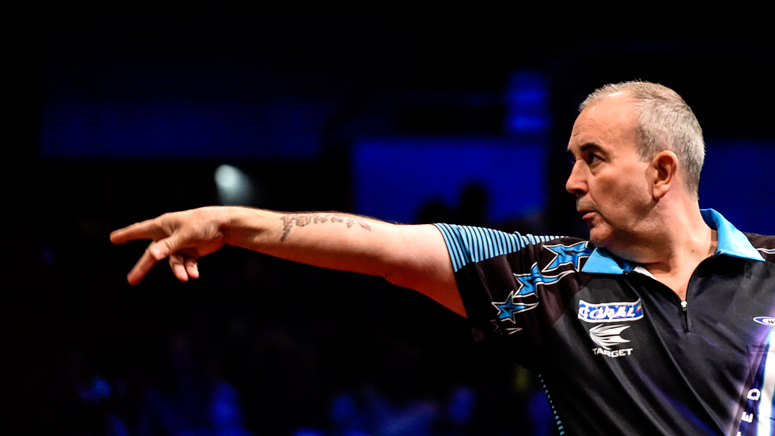Darts Gameshows On TV
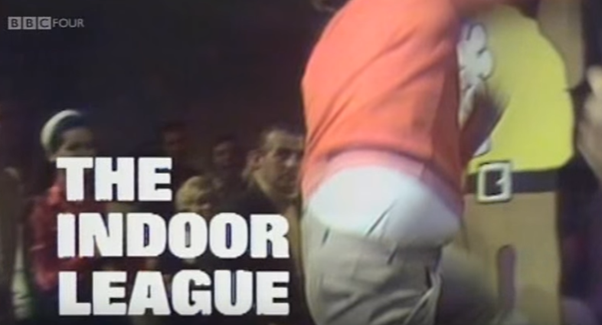 With one more week to go until live darts returns and therefore no darts betting tips for this week, let’s use our time to go on a trip through television history and find out how darts got to where it is today – through the medium of gameshows.
With one more week to go until live darts returns and therefore no darts betting tips for this week, let’s use our time to go on a trip through television history and find out how darts got to where it is today – through the medium of gameshows.
Darts has occupied an interesting place on UK television since the 1970s. Back then, it was still very much part of the pub game genre of sport which, not unlike snooker, meant that a pint and a smoke were part of the matchday ritual.
Although it has never quite left behind its beer-swigging image, nowadays darts has become a sub-cultured sport of its own. The competitors, never of athletic build, still wear ludicrously garish shirts and sport really rather superb beer guts, but that hasn’t halted the sport’s relentless rise to the top.
With this image cemented, it’s worth looking back at darts’ place on British TV over the last few decades. Darts first made it on to the telly in 1962 when Westward Television started up their own televised invitational championship. Eight years later, ITV launched the News of the World Championship, but both are long since forgotten with their mission statement (to make darts popular) very much unfulfilled.
Then gameshows happened.
The Indoor League
Rewind back to 1972 and, for those old enough to remember, think back on a show that was perhaps the most curiously British thing ever made for TV. Indoor League, produced by Yorkshire Television and the forever missed but never forgotten Sid Waddell, was a show all about the very worst in old bar games.
Indoor League was hosted by former Yorkshire and England cricketer “Fiery” Fred Trueman who presented his show in a trademark drab-as-they-come cardigan, with an old English pint jug in one hand and a smoker’s pipe in the other. It was a look that our Fred really rocked, to be fair:
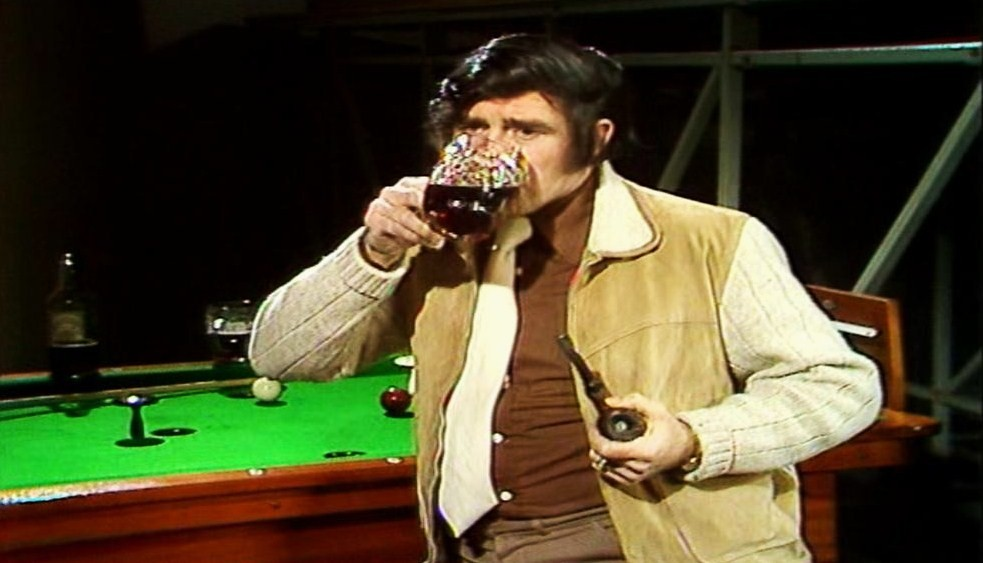
So pub-like was this show that the producers saw nothing wrong with popping their logo on a freeze frame of fat bloke with his beer belly dripping over his trousers (belt not required, obviously). I am unreliably informed that said fat guy was Alan Evans, who was famous for his ability to check out 150 with three bullseyes.
Why anyone would want to watch table football I have no idea, but somehow the show ran for five years, with the first airing only in Yorkshire. So pleased were they with their creation that it went nuclear and was broadcast nationwide thereafter.
Sadly, Fred, who ended each show with the phrase, “ah’ll see thee”, passed away in 2006. As well as being a first class cricketer for county and country, he helped launch televised arrows at a time when the game was in its infancy (the Darts World Championship was broadcast for the first time the same year, 1972). He leaves behind a fine legacy of darts gameshows.
I only wish they would bring it back; just leave out the table football, obviously.
[featured_offer id=”8075″]
Bullseye
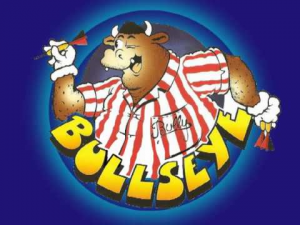 Which leads us to the daddy of them all: Bullseye. Proving that you can’t beat a bit of Bully, Sunday television in the 1980s was dominated by ITV’s Big Match which was the forerunner to Sky’s Super Sunday prior to Premier League Football.
Which leads us to the daddy of them all: Bullseye. Proving that you can’t beat a bit of Bully, Sunday television in the 1980s was dominated by ITV’s Big Match which was the forerunner to Sky’s Super Sunday prior to Premier League Football.
This was hotly followed by Bullseye. Although the show is no longer broadcast (barring a failed Ant and Dec reboot), it is one of the most treasured and iconic British TV shows of all time. Pubs today still install quiz machines where a Bullseye game is almost always on offer.
This show, first broadcast in 1981, was darts and darts alone. Part quiz, part arrows, the teams were often, but not always, compiled of husband and wife; one amateur plus one piss-poor darts player; with Jim Bowen as host and numerous darts boards to play at over three rounds.
There were question and answer rounds, a gambling element (don’t worry, they always left with at least their BFH, bus fare home, and a Bendy Bully), real money prizes and Bully’s star prize – usually a caravan or a speedboat, the latter almost always inevitably won by a couple from Birmingham.
They even managed to squeeze in a professional’s appearance where a player would try to throw for money for a charity, the record for which is held by one Alan Evans.
In round one, the better of the two would step up to aim for one of ten segments on a specifically redesigned board to win cash (the value of which was determined the dart’s proximity to the bull), as long as it landed in the quiz category selected by their partner.
By round two the familiar board returned, and players played for the right to answer a question. In round three, the last remaining team played at Bully’s Prize Board, which contained prize-filled red segments and empty black segments and a bullseye, where Bully’s special prize was won.
At this point, Bowen instructed his guests to “Keep out of the black and in the red, nothing in this game for two in a bed.” Once prizes had been won, players were invited to gamble the lot for a shot at Bully’s Mystery Star Prize, won by beating 101 with three darts each.
Super, smashing, great stuff.
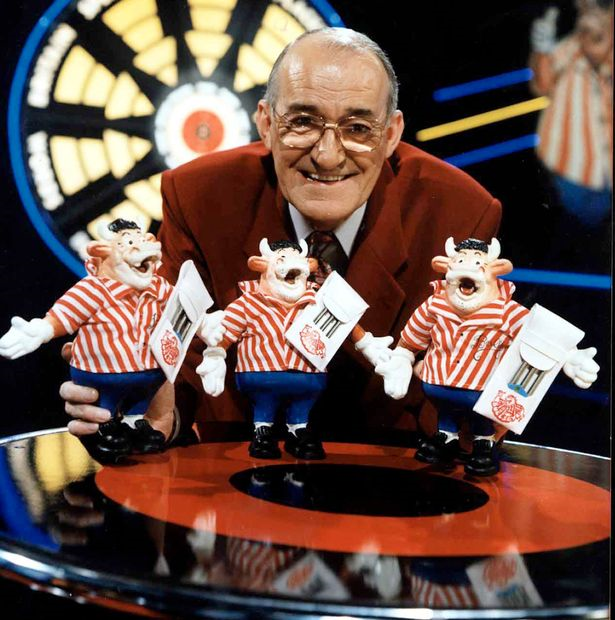
Present-day darts shows
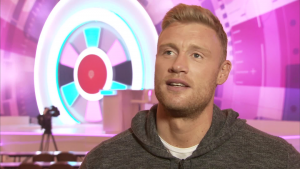 Hosted by the perpetually confused Davina McCall, One Hundred and Eighty attempts to recreate a real darts tourney experience by filming live at Blackpool’s Winter Gardens, with all the walk-ins and theatrics that people have come to expect.
Hosted by the perpetually confused Davina McCall, One Hundred and Eighty attempts to recreate a real darts tourney experience by filming live at Blackpool’s Winter Gardens, with all the walk-ins and theatrics that people have come to expect.
The shouty crowd behave as they do at an event by dressing up and poking each other with big foam fingers. The game itself features two proper pros (Phil Taylor, Adrian Lewis and Michael Van Gerwen have all made appearances) paired up with members of the public that play in both quizzes and a host of darts games. The first of these is a game of doubles, duelled over by the pros, which elects the night’s playing money. All the while, darts commentator and former England cricket captain Andrew ‘Freddie’ Flintoff (right) is watching on and passing comment.
While nothing compares to Bully, it deserves another chance, if only to win the game new fans. It serves as a decent replication of a televised tournament, if a bit shinier and more illuminated.
We can certainly be sure that Sky favourite Freddie, when not shifting fish and chips off Southend Pier or stripping in Vegas with the Chippendales, would be on board; he is either in need of the cash or unable to turn down a job. But what about Alan Evans?
